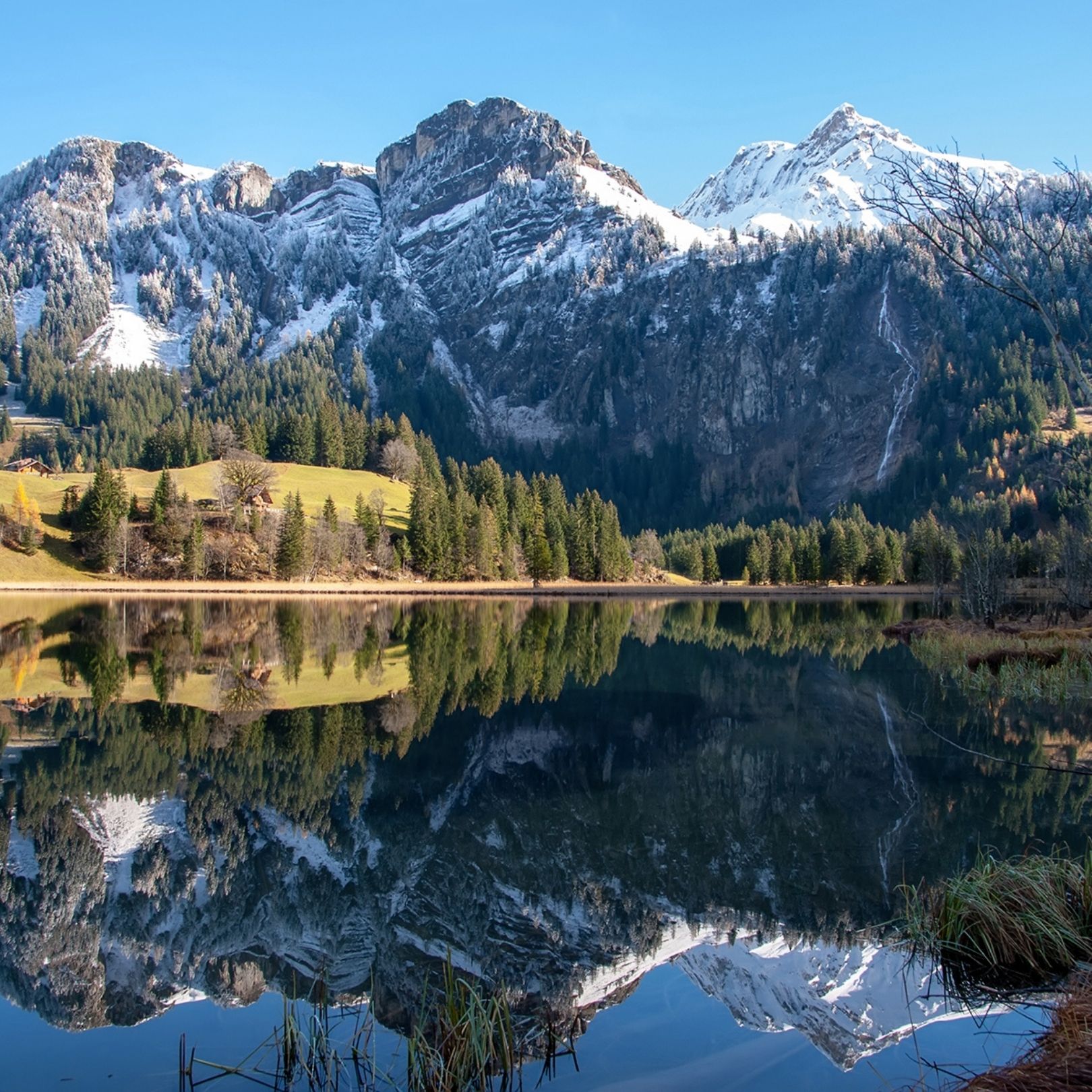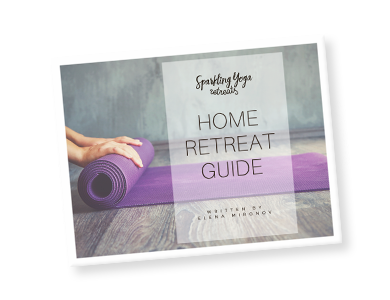Did you ever stop and ask yourself, “Just what am I living for?” Purushartha, or the four aims of the soul, will give you the answer.
Aligning With The Purpose of Life (On a Yoga Retreat)
Aligning with the purpose of life on a yoga retreat is something that I have observed happening to a variety of practitioners from all walks of life over many years of teaching retreats, and could not resist sitting down and putting my thoughts, observations and inspiration from the yoga philosophy into an article to share my findings with you.
We all have a desire for a meaningful life, and often we come to yoga and meditation in our pursuit for meaning. And although many yoga practitioners have never heard or read about this, yoga tradition offers a paradigm for self-examination, or four aims of life as we call it, which all contribute to finding a deeper meaning in how we live our lives, to supporting our inner work as well as to finding inner and outer balance.
In yoga, we call the 4 aims of life purusharthas
("purusha" means roughly "soul" and "artha" means "the purpose of" or "the ability").
The four purusharthas are:
・dharma (duty, ethics)
・artha (prosperity, wealth)
・kama (pleasure, sensual gratification)
・moksha (the pursuit of liberation)
The purusharthas are created for our fulfilment as human beings, to help us find deeper meaning in our lives, for successful, satisfying, balanced existence in the world. Being aware of this paradigm and actually doing our inner work with the 4 purusharthas can help you create a foundation for a deeply balanced and satisfying life.
Dharma: Duty
Dharma means "duty," "ethics," "righteousness," "work," "law," "truth," "responsibility". The meaning of the word is synonymous with your very purpose in life — with having the strength and motivation to get up each day and do what needs to be done.
Dharma is about that which gives life order—about stepping up to your own responsibilities, about working within the structure to serve yourself and everyone around you. Dharma is ultimately about enhancing life, making it more purpose-filled. According to yoga scholars, dharma is the ethical basis on which you live your life.
And here are some of the questions to ask yourself to define your own dharma:
・ Given all of the variables, what is it that best serves both you and the greater good?
・What is your role in the world?
・What are your obligations?
・Which ones of them feel right?
・When you are serving the highest good, what are you doing?
・How can you best serve the world around you?
Artha: Prosperity
Artha is defined as "material prosperity," "wealth," "abundance," and "success." Artha is the material comfort you need to live in the world with ease. Artha also refers to the objects or possessions — your home, clothes, computer — you need to fulfil your dharma. Artha is, simply put, that which supports your life's mission.
For a chef, the essential artha is a kitchen, equipment and ingredients; for a yoga practitioner, artha is time and space for uninterrupted practice. It can also mean the knowledge, education, skills, or understanding you need to find your place in the world—something you certainly need to pursue the dharma of a teacher or doctor, for instance. It also means good health. And, of course, it means money.
Here is the thing: unlike some of us might have understood, the yoga tradition does not define artha and wealth as negative. What they ask us to do is learn to live skilfully in a material world of objects that exist for our benefit. It's not about rejecting the world or renouncing it, but about figuring out how to be content while living a life of a human.
Artha is the skills we develop to live a successful worldly life, a must to be able to actualise our life's purpose. If we don't figure out artha in our human life, we don't feel good about ourselves. Artha is one of the basic human dignities — to have enough money to live on and care for your family, to grow and develop ourselves to be the most realised version of who we came here to be.
Here are some questions to ask yourself:
・What do you see as truly valuable?
・Knowing your dharma, what do you need to play your role in the world?
・Do you have enough?
・Are your things making you happy, or are they preventing you from experiencing joy?
・Are you afraid of having more?
・Are you afraid of not having more?
・What does abundance and wealth mean to you besides money?
Kama: Pleasure
According to Rod Stryker who wrote a book about the 4 purusharthas, kama, or the desire for pleasure, is what drives all human behaviour. Kama relates to pleasure, and that can be sensuality. But it's also art, beauty, intimacy, and kindness. It's what brings a sense of delight to our lives.
Just like Artha, when misunderstood, kama can get some bad reputation. And if you think about excessive kama that can lead to overindulgence, addiction, sloth, greed etc, it's easy to see how.
But it is a positive thing, and indeed necessary, when it exists to support dharma - your duty and purpose. Kama is what contributes to the richness of life. You have been seeking every single thing that you accomplished for the pleasure that it provides. We live in service to a higher purpose, but while we are on that path, there is the pleasure we take from being with our loved ones, from enjoying beauty that is around us and inside us.
For a yoga practitioner, to practice kama is to be fully present with whatever you are experiencing: whether it is enjoying your lunch or finding a meditation practice which makes you feel like your heart is expanding. You learn to distinguish between the pleasures that serve you from the pleasures that are potentially destructive and depleting.
Ask yourself these questions:
・What are you passionate about?
・What brings you pleasure?
・Are you happy?
・What do you care about?
・What do you most desire?
・Are you addicted to some of the destructive pleasures in life?
・Are your pleasures leading you toward or away from your life's purpose?
Moksha: Freedom
Moksha means liberation, is widely considered to be the culmination of the purusharthas.
Ultimately, we all want to find our purpose, and to be free. We want to be free to create, to express our truth and our purpose, to live happily and fully. And on the other hand, we want to be free from pain, from suffering, from everything that's blocking us.
Moksha is about getting off the wheel of samsara which is the cycle of suffering caused by birth, death, and rebirth. Yoga claims that by birth we are so free that we can even choose bondage. This is why I believe it is so important to practice clarity so that you remember who you really are and the intrinsic freedom you are born into, and to remember that a lot of the time when you feel bound or stuck, it is a choice you made and you have all the power you need to bounce back to your freedom.
Practicing yoga, in a very real sense, is practicing moksha. You are as free as you experience yourself to be.
Here are some questions to ask yourself:
・What do you choose to commit to?
・What are you doing to free yourself from activities and perceptions that make you unhappy?
・How can you not get caught in your feelings and emotions?
・What do you choose to bind yourself to?
・Do you feel trapped or blocked?
・Can you be free from blaming yourself and others?
・How can you make you mind free?
Yoga Retreat and Finding Your Purpose
I have been observing yoga practitioners in yoga retreats over the past 7 years, and what I have found is that sometimes to really start the process of deep inner inquiry and begin to find purpose and balance in life, we need to step back - we need to RETREAT. The purusharthas are
ultimately about how to live your life better while remaining a human, not a monk or saint, so there is no need to renounce your human life.
Just retreating every once in a while might just do it as you learn to see your life from a whole new vantage point as you step back, and help to align with the purpose of life.
・You gain more clarity and see things for what they really are.
・You begin to see where your patterns and habits are working for your benefit and for the greater good, and where they are destructive and it's just a matter of time before life will force you to change them.
・You begin to get more clear about what you are doing with your life and how to direct it in a way that will offer even more depth and service to yourself and others.
・You learn to appreciate what you have and recognise what you need on a material level to take a step closer to a life of purpose.
・You are reminded what brings pleasure to you and what really drives you.
・You remember how it feels to feel truly free - in your body, mind and heart.
And lastly, you clear your lens of perception to see how simple, rich and beautiful your life is.
So, I hope I have inspired you to sit down with yourself and ask yourself these important questions.
And if you decide to continue your inner inquiry on a yoga retreat, go ahead, check the offerings, and plan your next yoga retreat with me!



